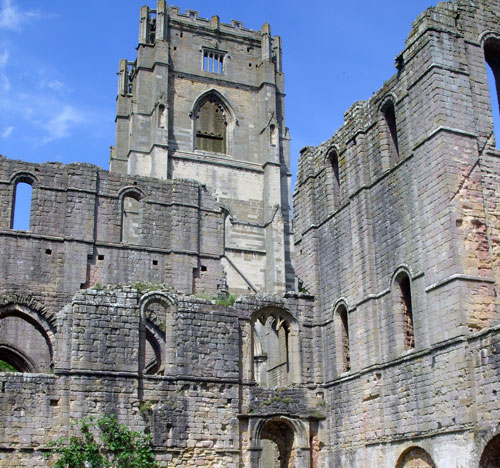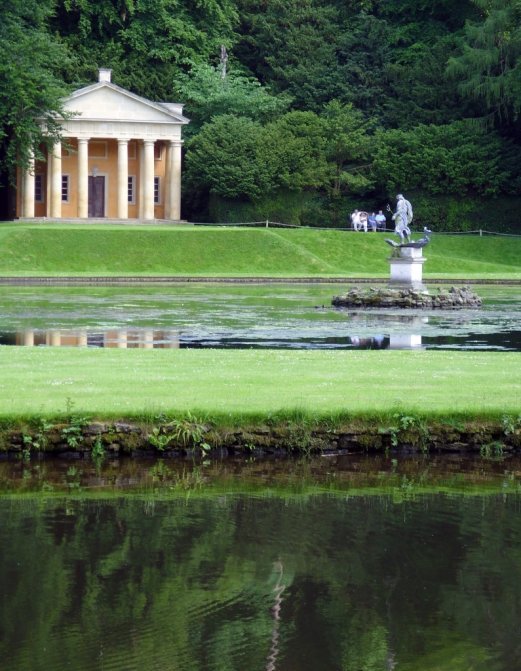Fountains Abbey represents the largest set of monastic ruins in the country, and as history lovers will know, we have Henry VIII to thank for them. Not content with claiming the job as head of the Church in England in order to divorce Katherine of Aragon and marry Anne Boleyn, he then set about relieving the abbeys and monasteries of their enormous wealth. There can’t be many places in the UK that generate such a mixed attack on the senses as Fountains Abbey in Yorkshire. The ruins themselves evoke a tumultuous period for the Church in England, whilst at the same time, the beauty and serenity of the setting cannot fail to calm the soul.

The Church in Ruins
Founded in 1132, the abbey was part of the Cistercian Order of “White Monks”. Some four hundred years later, however, Henry’s dissolution brought its days to an end and saw its treasures and property transferred to the Crown, and its stone, lead and glass to anyone who wanted it.
Beauty Amongst the Rubble
These days Fountains Abbey is a magnet for tourists. Set in the stunning Skell Valley, between Harrogate and Ripon, access is convenient with the A1 only 9 miles away. The ruins themselves are still remarkably intact with plenty of passages, staircases and towers to explore.
Being part of the Studley Royal Estate, visitors can also enjoy awe-inspiring scenery, sweeping manicured lawns and the river Skell which flows past the ruins and helps form the tranquil Studley Royal Water Garden and Studley Lake.

Mixing Old and New
As with all historical attractions, a nod in the direction of modernity is required to cater for today’s visitors and Fountains Abbey is no exception with cafés, shops and a variety of activities on offer. Couples can even use it as a dramatic backdrop for their wedding photographs, which perhaps one day their grandchildren will look at in wonder.
The real wonder of the place however must surely be the jaw-dropping fact that craftsmen actually possessed the skills to construct such a beautiful building nearly one thousand years ago.
